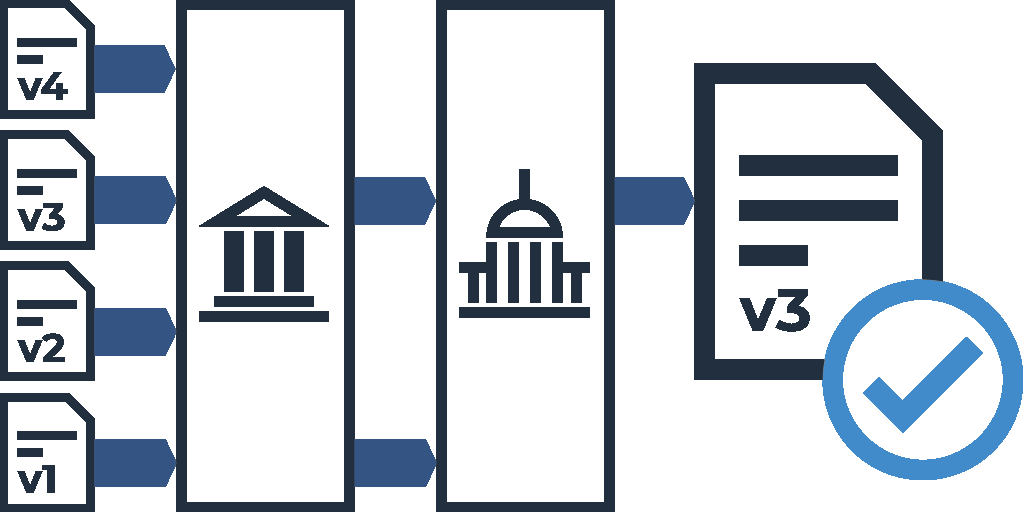How it works
Our goal is to answer the question: “How can this paper be self-archived in an institutional repository?”.
After years of doing permissions checking by hand, we know that three things are needed. First, knowledge about a specific paper, e.g., where and when was it published. Second, a visit to Sherpa/Romeo to discover and understand the relevant policies, for example, the publisher’s self-archiving policy. And third, time to find this information, double check the policies, and figure out exact embargos and deposit statements, among other things.
With shareyourpaper.org permissions we aim to automating permissions checking without cutting corners and provide a simple but complete answer to the question. However, the approach is the same.
Our first step is to we track down paper metadata from Crossref, Unpaywall, and Microsoft Academic. This can tell us when and where the paper was published, whether it was OA, and what its license. We can also often identify author affiliations and the source of funding for a paper.
Second, we use those details to find relevant policies in our database. We handcrafted the database from the ground up from the content of relevant policy documents. The database includes publisher self-archiving policies, of course, but it also includes institutional open access policies and laws where they affect self-archiving. All of this information was designed to be fully machine readable, is automatically monitored on a daily basis, and is archived when there is a revision. These features ensure that the database is up to date.
Then, we combine paper and policy information, to provide answers. This means we can find the exact embargo using the publication date and embargo length, complete the deposit statement using citation information, reveal whether a hybrid article can be archived, set the version based on an institutional policy or regulation, and more. If there are multiple ways to deposit an article, we try to choose the easiest for authors.
Each of our tools is designed to provide the answers needed in an easy and fast way.
Experts actively maintain the code and data in the open, We accept contributions to both code and data. We plan to continuously add features and policies.





